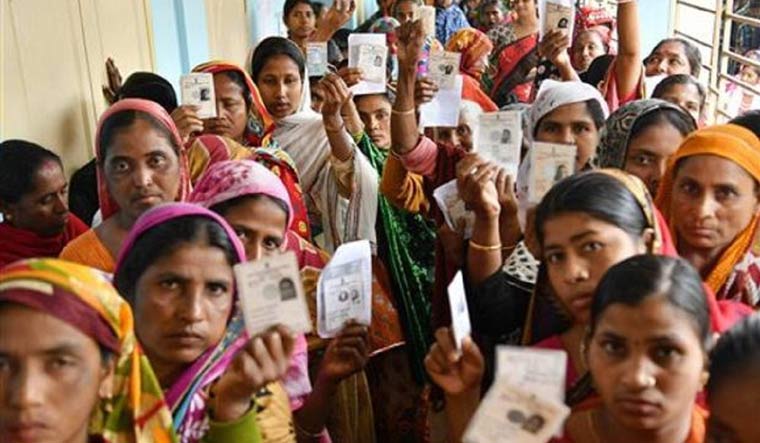Almost half of the Madhya Pradesh voters – exactly 48 per cent – belong to other backward classes (OBC), the State OBC Welfare Commission has said in its report.
On the basis of this figure, the commission has recommended 35 per cent reservation for OBC candidates in the three-tier panchayat and urban local body polls in the state.
This report will be presented before the Supreme Court on Friday, state urban administration minister Bhupendra Singh said at a press conference on Thursday evening. Chairman of the commission, Gaurishankar Bisen was also present on the occasion.
The OBC commission report was made public in haste after the Supreme Court on Thursday set a 24-hour deadline to the Madhya Pradesh government to present the ‘triple-test’ report on OBC quota in context of the pending local body polls in the state. The SC will continue hearing petitions seeking early polls to these local bodies on Friday afternoon.
The Supreme Court indicated on Thursday that if the state government failed to present the report or the report was not found suitable by the court, it might order the holding of the local body polls without OBC quota, as it did in the case of the state of Maharashtra.
The issue of OBC quota in local body polls has been hanging fire. This in December 2021 led the MP government to defer the panchayat polls scheduled for January-February, 2022 after SC ordered a stay on elections to OBC quota seats. Later in January 2022, SC made it clear that no OBC quota would be allowed if states did not fulfill the ‘triple-test’ norms.
The ‘triple-test’ norms were laid down by the SC in its March 4, 2021 judgment in the case of Vikas Gawali versus State of Maharashtra. The triple tests call for setting up a dedicated commission that will conduct a rigorous inquiry into the nature and implication of backwardness local body-wise. The inquiry would specify the proportion of reservation to be provided local body-wise based on the recommendations of the said commission “so as not to fall foul of overbreadth” and to ensure that in any case such reservation to OBCs did not exceed the aggregate of 50 per cent of the total seats reserved for SCs/STs/OBCs.
The Madhya Pradesh government started gathering the data on OBC voters through the State OBC welfare commission following this stalemate. On Thursday, the government asked for time till May 25 to present its data, but the SC asked it to do so by Friday, following which the data was made public on Thursday evening.
However, the presentation of the data might not pave way for OBC quota in the local body polls as the 35 per cent quota recommendation by the OBC panel and the 27 per cent quota promised by the BJP government, will both violate the final triple-test norm of the quota for OBCs not exceeding the aggregate of 50 percent of the total seats reserved for SC/ST/OBCs.
The ST and SC population get 20 per cent and 16 per cent reservation in Madhya Pradesh in various levels of elections as well as in jobs and academics and thus there remains possibility of only a 14 per cent quota to the OBCs, experts say.
The only other way is to get the enhanced quota for OBCs included in the 9th schedule of the constitution, to give it validity. This is one of the recommendations made by the OBC panel report made public on Thursday.
What does the commission report say?
The panel report says that if the scheduled tribe and scheduled caste voters are separated, OBCs make up as much as 79 per cent of the remaining voters in the state. The rest (21 per cent) will be general category and minority voters.
The other recommendations of the panel include declaration of blocks and districts ‘OBC-dominated regions’ on the basis of a caste-based survey and special development plans be made for these regions. A list of those castes that are considered OBC in Madhya Pradesh, but not so in the central list, should be forwarded to the Centre for inclusion and state should include such castes that are considered OBCs in central list, in its own list.





